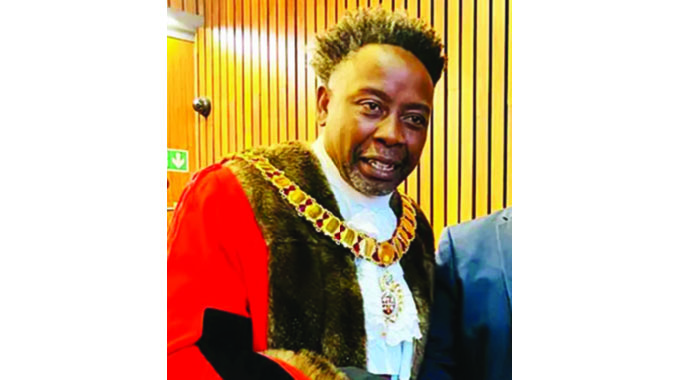For the diasporans, giving is rarely reciprocal

Dr Masimba Mavaza
Being abroad is always a calabash of mixed feelings. But the feeling of going home even for a day is a breath of fresh air.
“Part of me knew, from the very second my dad called me, I would go back home to be there for my family, but the rest of me took a few days to wrap its mind around it. Really? Is it really the end, already? I thought I had more time. (Oh, how fitting these reflections were),” commented Tadiwa Magaya when describing his feelings of going back home.
Well, that’s life isn’t it? You work to bring yourself to a certain place and state of mind, think of what you want, who you want to be, start feeling like you’re getting a hold of your life, have an idea of where you want to go, maybe some plans and expectations and then – life happens.
How easily we forget this, even though we all know it: everything changes – always, constantly. That may be the only thing you can be sure of; you can’t be sure of anything.
Life, death, accidents, separations, endings, changes. It’s all about learning to let go isn’t it? When you are in diaspora you will have to go home one day.
When you go home you are expected to bring some presents for family and friends. Despite the limited baggage weight you are expected to carry, you try to make everyone back home get something.
It is a pleasure to buy someone a gift. But the biggest question is, is it reciprocal. Do the people you buy presents reciprocate?
Maria Masaila said it is very sad that relatives back home only want to receive gifts, but never give anything to take back to diaspora.
Maria commented: “I was just wondering how everyone feels about this issue. I admit that I spent a lot of money buying Christmas gifts. I bought gifts for people, but I didn’t get that many gifts in return. I was just wondering how you all feel when you buy gifts and don’t receive any in return even from close friends. I know the season is more about giving than receiving. It has happened to me a few times so I am used to it now. Our people never feel for you, to them you are created to give, not to receive.”
Gifts are important in the relationship, and no one should be deprived of them if one receives he must be able to give. We do not demand expensive returners.
Just nzungu and nyimo can be a great present everyone has a different giving style. We are all very different people.
“The topic of gifting is critical. Due to the “gold-digging” culture, gifting is getting a bad wrap. You may think only shallow people expect recurring gifts, but I believe that every single one of us should receive presents frequently. I would like to explain my view, as well as offer my personal experience,” said Malvern Moyo from Leeds UK.
Every Christmas, birthday, anniversary and special occasion, we carefully choose and offer gifts to our loved ones. It’s something we do naturally and most of us don’t think about its deeper implications.
Yet, the gift we choose and how we present it says so much about us, our relationships, and the complex social structures within our community.
Behind every perfect present lie social, psychological and emotional currents. The problem comes when the gifts are flowing from one side. The people we give presents end up developing a sense of entitlement.
The practice of gifting has existed since the beginning of human civilisation. It may even predate it, with our closest ancestral relatives having shown signs of gift giving.
Researchers believe that our ancestors gave presents like unusual shaped rocks or animal teeth to strengthen social connection and show their appreciation to others. As social structures developed, the gifts became more elaborate and decorative.
For thousands of years, Native African tribes have engaged in the tradition of giving gifts. The better word has been exchange of gifts.
In Shona culture there is a statement which say “kandir0 kanoenda kunobva kamwe” translated to mean the plate goes where the other plate goes. Meaning give the one who gives you.
Predominantly a tradition of Southern African tribes, visitors are expected to come to your house with a gift and they must leave with a gift never empty handed.
But these days everyone expects a gift from diaspora and does not give you anything.
Many in diaspora have to go to Mbare to buy maputi and things to take back with them to diaspora. None of their friends or relatives offer them even a stick to take home.
People have become selfish they just want you to give but not even one is expecting to give in return.
Mrs Mavhima of Leeds said: “This is something my husband and I have a long term debate on. We have certain members of our family who love receiving high-end gifts, and will even have the audacity to indicate what they want for their kids, yet are not so good with reciprocating. Most of the time we don’t even receive a birthday message or birthday card, let alone a gift. At Christmas, we receive nothing, or very half hearted not very well thought out gifts.
“Now, bear in mind that these’re people whose combined income is way higher than ours (also combined). We buy them very generous gifts each year we visit home, as well as gifts we know they’ll appreciate (they are label bashers!) as well as birthday gifts if it’s a milestone birthday. My stance is very clear; Christmas is a time to give, but it’s a two way street. It may sound horrible, but I feel that if someone doesn’t like to spend money on gifts, they shouldn’t expect nice gifts. We’re all struggling in these hard times, and let’s face it; in as much as this is a Christian holiday and it’s all about giving, we ALL like to receive something nice.”
We like to think of many relationships as roughly equal. With friends, co-workers, and relatives such as siblings and cousins, we usually don’t think of one person as more valuable or more worthy than another. Ideally, the give-and-take is fundamentally, if not precisely, reciprocal.
When diaspora say “gifts”, we absolutely do not mean anything expensive. Everyone has a different perspective of what a gift should be, but they are against expensive materialistic presents. If you are not — that is fine! We all have different expectations.
“I, personally, refuse to accept anything pricey. Truth be told, more than one person made a snarly comment about me having low-self esteem since I reject expensive gifts. You see, the way I look at it, a price tag has nothing to do with my self-esteem or self-worth. If someone presents me with a diamond ring, my self-esteem will not go up. Similarly, if all I get is flowers, it doesn’t mean my self-worth is less compared to the diamond-ring-girl. Gifts don’t represent our importance or worth — it’s merely an act of appreciation and care,” commented Abide Shumba from Manchester.
Gifts take many forms, including simple ones. The best gift one may give you is an emotional one: a framed picture of the two of you; a book you mentioned last week, and your partner was caring enough to go and get it; a box of matemba or just anything from home which makes you home sick.
Anything that your relative saw while shopping around, and decided to buy for you. It is the thought behind the gift which is important.
It doesn’t even matter if the gift comes with a price tag at all.
If your loved one happens to have access to free items — at work, for example — and they bring something for you — it’s equally amazing.
It means they thought of you, saw a gifting opportunity, and made arrangements to grab something to give to you later.
Similarly, if you are complaining about rice and your loved one brought over mugs UWS to take home it’s a much more valuable gift compared to a diamond ring.
Gifts reflect one’s care and thoughtfulness, which is why they hold value in the relationship. Gifts don’t represent our importance or worth — it’s merely an act of appreciation and care.
The act of giving presents represents one of five love languages. All of them are equally important, and gift-giving is no different.
Picking something for a loved one shows caring about that individual, and that is priceless in any relationship.
Every one of us shows their love differently, but exercising all love languages is a good idea. Don’t neglect any one of them — that includes gift-giving.
Be prepared to receive gifts as well as giving. Gifts reflect one’s care and thoughtfulness, which is why they hold value in the relationship.
It is sad that people only believe diaspora is the only one to bring gifts and those at home are just to receive. The culture of entitlement is the one which has destroyed Ubuntu.
Despite the fact that they do not give you gifts back people want to ask for gifts.
But no one should ever be asking and especially begging for gifts. When your friends do not present you with fancy jewellery and sports cars — it’s fine.
But if they are barely showing signs of care, it’s a humongous red flag. Care doesn’t have a price attached to it: either the person shows consideration, or they don’t.
Lack of gifts can be one indicator of that. A lack of attention is another one. All of it is interconnected, and they potentially have one thing in common: the absence of interest.
If your relative isn’t interested in you, the relationship is, quite possibly, doomed. You will remain the giver and you will suffer to death.
We often give gifts to re-confirm or establish our connection with others, which means that they’re a reflection of both the giver and the receiver, as well as their unique relationship.
Giving a gift to someone we care about allows us to communicate our feelings and appreciation for them.
In one way or another, gifts are used to symbolise love and devotion between two partners, coinciding with the theory of ‘symbolic interactionism’, which argues that people communicate through the use of symbols.
For example, what do men typically buy for their partners when trying to express love or devotion? They bring flowers since they can be interpreted to symbolise feelings of love with their fragrant beauty.
Since gifts represent our desire to build or cement a relationship, they also require some form of reciprocation. So to prevent ill feelings gifts must be repaid creating a cycle of gift giving.
When reciprocating a gift.
Some gifts are given with no expected return. For example, we often give presents to young children that have no way of reciprocating, or even our pets.
While it could be argued that these gifts are reciprocated in other ways, altruism could also be at play. Love and appreciation are two of the biggest motivators for altruistic gift giving.
Giving gifts to help others can include donating money or volunteering for a charity.
Gift-giving is a wonderful tradition. It shows care, it feels good, and it makes both parties happy. When you care about someone, you want to make them smile and feel a little bit happier at any given moment of the day. Gifts don’t have to be pricey; they just have to be meaningful.
Don’t waste your time on someone who doesn’t give a flying hoot about you.
Don’t neglect this love language. Get involved in gift-giving to show thoughtfulness and express your love. Many years later, both you and your family will have many presents symbolising your partnership and commitment.









Comments